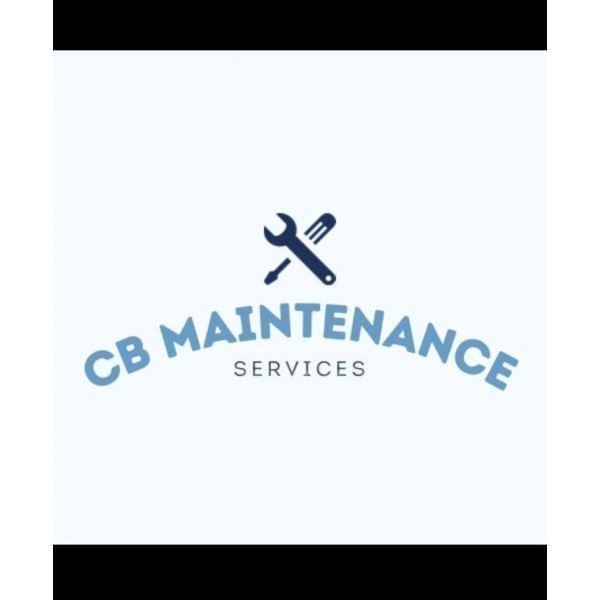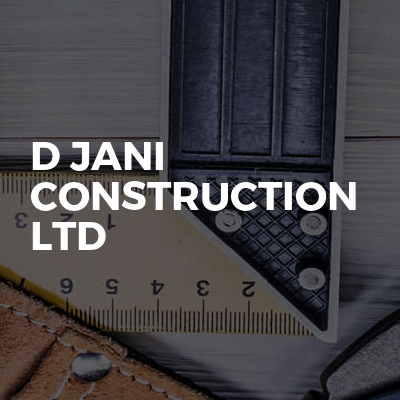Property Refurbishment in Rotherham
Welcome to SKR Specialist Services Ltd, your go-to experts for all your renovation and property needs in Kimberworth Park and the wider S... read more »
Welcome to IGS Ltd, your trusted partner for all your plumbing, property maintenance, and refurbishment needs in Sheffield and across Sou... read more »
Welcome to JH Joinery, your trusted partner for all your building and carpentry needs in Ashgate and throughout Derbyshire. As a premier... read more »
Welcome to CB Maintenance Services, your go-to solution for all your tradespeople needs in the heart of Sharrow and acro... read more »
MS Moore Properties Ltd is your go-to expert for all building and renovation needs in North Anston and... read more »
Welcome to Developing And Building Ltd, your go-to experts for all things construction in Hay Field and across South Yorkshire. As a fami... read more »
Welcome to Messer Brothers Roofing, Building and Landscaping, your go-to experts for all your construction and landscaping needs in Camps... read more »
786 Builder's: Your Trusted Tradespeople in Fir Vale, South Yorkshire
Welcome to 786 Builder's, your go-to exper... read more »
Welcome to Sapphire Construct, your trusted partner for all your building and renovation needs in Shaw Lands and throughout South Yorkshi... read more »
Welcome to Felvus Property Solutions, your go-to experts for all your building and renovation needs in Upper Haugh and the wider South Yo... read more »
Welcome to HS Joinery, your go-to experts for all things carpentry and refurbishment in the heart of Handsworth, South Yorkshire. Our ski... read more »
Welcome to Embrace Brickworks, your trusted partner for all your building and renovation needs in Gateford and across Nottingha... read more »
Welcome to Westwood Joinery And Construction Ltd, your go-to experts for all your building needs in Mortomley and across South Yorkshire.... read more »
Welcome to Sarjant Construction Ltd, your go-to experts for all building needs in Creswell and the wider Derbyshire area. As a leading na... read more »
D JANI Construction LTD is a reputable construction company based in the heart of Doncaster, offering a... read more »
Welcome to K D Building & Renovation Ltd, your trusted partner for all your building and reno... read more »
Welcome t... read more »
Welcome to Elliott Property Services Lyd, your go-to... read more »
Elliott Property Services Ltd is a r... read more »
Search Property Refurbishment in places nearby
Understanding Property Refurbishment in Rotherham
Property refurbishment in Rotherham is an exciting venture that offers numerous opportunities for homeowners and investors alike. Whether you're looking to enhance the value of your property or simply want to create a more comfortable living space, understanding the ins and outs of refurbishment is crucial. This article delves into the various aspects of property refurbishment, providing a comprehensive guide to help you navigate this rewarding process.
The Importance of Property Refurbishment
Refurbishing a property can significantly increase its market value and improve its aesthetic appeal. In Rotherham, where the property market is competitive, a well-refurbished home can stand out and attract potential buyers or tenants. Moreover, refurbishment can address structural issues, enhance energy efficiency, and modernise outdated interiors, making your property more comfortable and cost-effective to maintain.
Boosting Property Value
One of the primary reasons for undertaking property refurbishment is to boost the property's value. By updating key areas such as the kitchen, bathroom, and living spaces, you can make your home more appealing to buyers. In Rotherham, where property prices are steadily rising, a refurbished home can command a higher price, offering a substantial return on investment.
Improving Energy Efficiency
Refurbishment provides an excellent opportunity to improve your property's energy efficiency. By installing double-glazed windows, upgrading insulation, and incorporating energy-efficient appliances, you can reduce energy consumption and lower utility bills. This not only benefits the environment but also makes your property more attractive to eco-conscious buyers.
Planning Your Refurbishment Project
Successful property refurbishment requires careful planning and consideration. Before embarking on your project, it's essential to establish clear goals, set a realistic budget, and create a detailed timeline. This will help you stay on track and ensure that your refurbishment meets your expectations.
Setting Clear Goals
Begin by identifying the primary objectives of your refurbishment. Are you looking to increase the property's value, improve its functionality, or enhance its aesthetic appeal? Understanding your goals will guide your decisions and help you prioritise tasks throughout the refurbishment process.
Budgeting for Refurbishment
Creating a realistic budget is crucial for the success of your refurbishment project. Consider all potential costs, including materials, labour, permits, and unforeseen expenses. It's wise to set aside a contingency fund to cover any unexpected costs that may arise during the project.
Choosing the Right Professionals
Hiring the right professionals is essential for a successful refurbishment. In Rotherham, there are numerous skilled tradespeople and contractors available to assist with your project. Take the time to research and select professionals with a proven track record and positive reviews.
Finding Reliable Contractors
When choosing contractors, seek recommendations from friends, family, or online reviews. Verify their credentials, experience, and previous work to ensure they are capable of delivering quality results. It's also important to obtain multiple quotes to compare prices and services.
Working with Architects and Designers
If your refurbishment involves significant structural changes, consider hiring an architect or designer. These professionals can help you create a cohesive design plan that maximises space and functionality while adhering to building regulations.
Key Areas for Refurbishment
Focusing on key areas of your property can yield the most significant returns on investment. Kitchens, bathrooms, and living spaces are often the most impactful areas to refurbish, as they are frequently used and highly valued by potential buyers.
Kitchen Refurbishment
The kitchen is often considered the heart of the home, making it a prime candidate for refurbishment. Upgrading appliances, cabinets, and countertops can transform the space into a modern, functional area that enhances the overall appeal of your property.
Bathroom Upgrades
Bathrooms are another critical area for refurbishment. Consider updating fixtures, tiles, and lighting to create a spa-like atmosphere. Adding features such as underfloor heating or a walk-in shower can further increase the bathroom's appeal and functionality.
Enhancing Living Spaces
Refurbishing living spaces can create a more inviting and comfortable environment. Consider updating flooring, lighting, and paint to give these areas a fresh, modern look. Open-plan designs are particularly popular, as they create a sense of space and flow throughout the home.
Addressing Structural Issues
During refurbishment, it's essential to address any structural issues that may affect the property's safety and integrity. This includes repairing foundations, roofs, and walls, as well as addressing any damp or mould problems.
Foundation and Roof Repairs
Ensuring the stability of your property's foundation and roof is crucial. Look for signs of damage, such as cracks or leaks, and address them promptly to prevent further deterioration. Hiring a structural engineer can help assess the extent of any issues and recommend appropriate solutions.
Dealing with Damp and Mould
Damp and mould can cause significant damage to a property if left untreated. Identify the source of moisture and implement measures to prevent it, such as improving ventilation or installing damp-proofing solutions. Regular maintenance and inspections can help keep these issues at bay.
Incorporating Modern Technology
Integrating modern technology into your refurbishment can enhance the property's functionality and appeal. Smart home systems, energy-efficient appliances, and advanced security features are increasingly popular among buyers and can set your property apart from others on the market.
Smart Home Systems
Smart home systems allow homeowners to control lighting, heating, and security remotely, offering convenience and energy savings. Consider installing smart thermostats, lighting systems, and security cameras to enhance your property's appeal and functionality.
Energy-Efficient Appliances
Upgrading to energy-efficient appliances can reduce energy consumption and lower utility bills. Look for appliances with high energy ratings and consider incorporating renewable energy sources, such as solar panels, to further enhance your property's sustainability.
Navigating Building Regulations
Understanding and adhering to building regulations is essential for any refurbishment project. These regulations ensure that your property meets safety and structural standards, protecting both you and future occupants.
Obtaining Necessary Permits
Before commencing any refurbishment work, check whether you need planning permission or building permits. Failure to obtain the necessary approvals can result in fines or the need to undo completed work. Consult with local authorities or a planning consultant to ensure compliance.
Ensuring Compliance with Safety Standards
Adhering to safety standards is crucial for the well-being of occupants and the property's longevity. This includes ensuring proper electrical wiring, fire safety measures, and structural integrity. Hiring qualified professionals can help ensure that your refurbishment meets all necessary safety requirements.
Maximising Outdoor Spaces
Outdoor spaces are an extension of your home and can significantly enhance its appeal. Consider refurbishing gardens, patios, and balconies to create inviting areas for relaxation and entertainment.
Garden Landscaping
Landscaping can transform a garden into a beautiful, functional space. Consider adding features such as decking, water features, or outdoor lighting to enhance the garden's appeal. Low-maintenance plants and sustainable gardening practices can also add value to your property.
Patio and Balcony Upgrades
Upgrading patios and balconies can create additional living space and improve the property's overall appeal. Consider installing weather-resistant furniture, outdoor heating, and decorative elements to create a welcoming atmosphere.
Financing Your Refurbishment
Financing a refurbishment project can be challenging, but there are several options available to help you manage costs. Understanding these options can help you make informed decisions and ensure the success of your project.
Exploring Loan Options
Home improvement loans, remortgaging, or personal loans are common ways to finance refurbishment projects. Compare interest rates, terms, and conditions to find the best option for your financial situation.
Government Grants and Incentives
In some cases, government grants or incentives may be available to help fund energy-efficient upgrades or structural improvements. Research available programmes and eligibility criteria to determine if you qualify for any financial assistance.
Maintaining Your Refurbished Property
Once your refurbishment is complete, regular maintenance is essential to preserve the property's condition and value. Establishing a maintenance routine can help prevent issues and ensure your property remains in top shape.
Regular Inspections and Repairs
Conduct regular inspections to identify any potential issues early. Addressing minor repairs promptly can prevent them from becoming more significant problems, saving you time and money in the long run.
Seasonal Maintenance Tasks
Perform seasonal maintenance tasks, such as cleaning gutters, servicing heating systems, and checking for leaks, to keep your property in optimal condition. These tasks can help prevent damage and prolong the life of your refurbishment.
Frequently Asked Questions
- What is the average cost of property refurbishment in Rotherham? The cost varies depending on the scope of the project, materials used, and labour costs. On average, refurbishment can range from £10,000 to £50,000 or more.
- How long does a typical refurbishment project take? The duration depends on the project's complexity. A simple refurbishment may take a few weeks, while more extensive projects can last several months.
- Do I need planning permission for refurbishment? It depends on the nature of the work. Structural changes or extensions may require planning permission, while cosmetic updates typically do not.
- Can I live in my property during refurbishment? It depends on the extent of the work. For minor updates, you may be able to stay, but extensive renovations may require temporary relocation.
- How can I ensure my refurbishment is eco-friendly? Use sustainable materials, incorporate energy-efficient appliances, and consider renewable energy sources to minimise environmental impact.
- What should I look for in a refurbishment contractor? Look for experience, positive reviews, and a portfolio of previous work. Ensure they are licensed and insured for your peace of mind.
Send a message






















